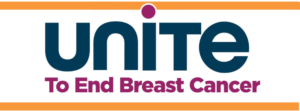The Patient Protection and Affordable Care Act (PPACA)
For more than a decade, NBCC has made access to quality health care for all a top legislative priority.
In 2007, the NBCC grassroots board of directors approved a Framework for a Health Care System Guaranteeing Access to Quality Health Care for All, which builds on the principles it adopted in 2003.
Throughout the process of developing the framework, NBCC applied its long-standing commitment to advancing evidence-based medicine and training consumers to support systems change. The PPACA, which became law in March 2010, marked an unprecedented step forward toward NBCC’s goal of ensuring access to high quality health care for all.
Breast and Cervical Cancer Treatment Act
After several years of an intense and aggressive grassroots lobbying campaign by NBCC’s nationwide network, the Breast and Cervical Cancer Treatment Act (P.L. 106-354) was signed into law on October 24, 2000.
This landmark legislation guarantees treatment to low-income, uninsured women screened and diagnosed with breast and cervical cancer through the Centers for Disease Control and Prevention’s (CDC’s) National Breast and Cervical Cancer Early Detection Program.
The act provides federal funding to states that opt to cover treatment for these women through Medicaid. Since this legislation was enacted, due to NBCC’s grassroots advocacy, all 50 states and the District of Columbia have opted into this program.
Access to Cancer Therapies Act
In December 2003, the Medicare Modernization Act was signed into law, creating a prescription drug benefit for all Medicare beneficiaries effective in 2006.
A provision providing transitional coverage for certain cancer drugs, from September 2004 until the full benefit was available in 2006, was also included in the law. The transitional benefit was based on the Access to Cancer Therapies Act, a longtime NBCC priority that would provide Medicare coverage for all oral cancer medications.
Early warning signs from the regulators writing the rules for implementing the transitional program indicated that breast cancer drugs might not be covered. The inclusion of five breast cancer drugs during the transitional benefit was a struggle that was won with the hard work of NBCC’s grassroots advocates.
Native American Breast and Cervical Cancer Treatment Technical Amendment Act Enacted
On January 15, 2002, S. 1741, the Native American Breast and Cervical Cancer Treatment Technical Amendment Act was enacted. This law helps ensure that American Indian and Alaska Native women get coverage for breast and cervical cancer treatment. NBCC’s advocates urged Congress to pass this legislation to help correct the unintended exclusion of these women from the Breast and Cervical Cancer Treatment Act.
Medicare Coverage of Routine Care Costs During Clinical Trial Participation Implemented
In June 2000, President Clinton issued an executive memorandum to require Medicare to cover the cost of routine patient care associated with participation in clinical trials. This executive memorandum implemented one of NBCC’s policy goals. Medicare coverage of routine care costs associated with clinical trials helps to encourage consumer participation in clinical trials, which are the best means of finding the cause, cure and prevention of breast cancer.
Protection Against Genetic Discrimination for Federal Employees
On February 8, 2000, President Clinton signed an executive order banning genetic discrimination in the federal workplace. NBCC worked tirelessly toward the enactment of comprehensible, enforceable genetic nondiscrimination protections in health insurance and employment. NBCC successfully worked with the administration to cover individuals in the federal workplace through the executive order.
